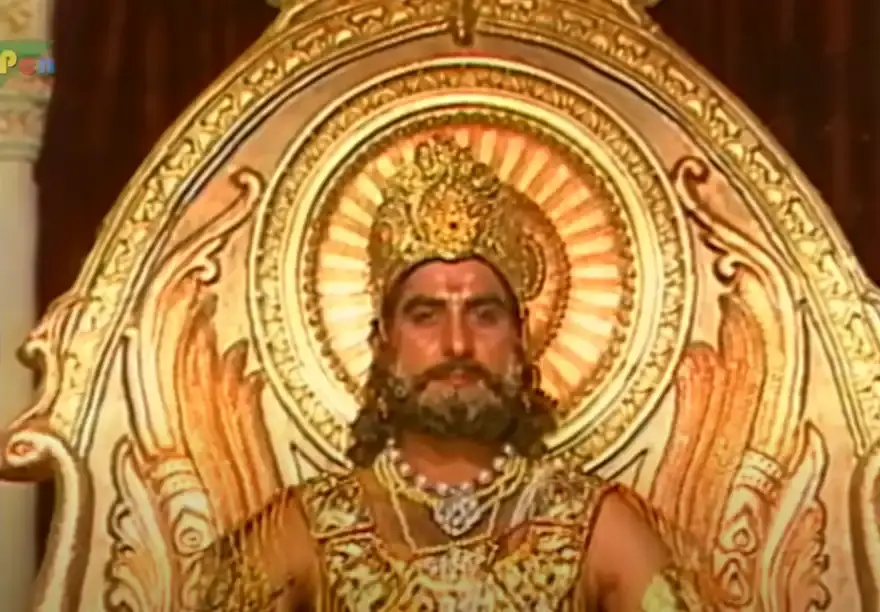Episode 01, part 1 - The story of king Bharat
Intro
This is the first of the many reviews I will be posting of the much loved Mahabharat television series that aired on DD National when I did not even exist.
I will try to post here weekly, and before each discussion, we will have a recap of what went on last time in this epic story and how things are looking for our characters in this game of dharma, karma, and glory.
The story of king Bharat
“Main Samay Hoon”
The iconic line that we are going to hear every episode rings true even in today’s time. Time is unmoved, undefeatable. It is Duryodhan, it is Arjun, it is the battlefield, and it is the battle iself. It is omnipresent, omniscient, and yet somehow we are lucky enough to listen to this tale in its own words.

Our story starts in the royal court of Hastinapur, where our king Bharat rules benevolently over his people. The great nation of Bharat was named after this king, and not only because he spread the boundries of his kingdom to lands far away, but also because he sowed the seeds of democracy in this land. Right from the first dialogue, we are told that king Bharat is not going to be long in this story. The royal priest/minister informs the king that while the kingdom reaches far and wide, it is time to choose the royal heir.
One thing to note in this series, is that while the special effects look campy sometimes, the series has tried to stay true to the source material. Unlike it’s modern counterparts, this series tries to focus on the content rather than the bling. Another point to observe is that you can easily spot the good guys and the bad guys from their expressions. Good people emit radiance, pure happy vibes. Their smiles will make you forget your troubles and looking at the negative characters that you will soon come to know, your mind will get uncomfortable. Good thing or bad? I don’t know, personally I prefer staying away from evil people, especially if I can spot them from far away.
We see king Bharat go to Maharshi who is a father figure to Bharat’s mother. After some small talk, Maharshi realises that Bharat has ulterior motives, and confronts him about it. Bharat reveals that while he has fathered nine sons (yes), he cannot choose a suitable heir. After guiding king Bharat philosophically, Maharshi sends him to conquer his own feelings.
While the whole court is waiting eagerly to see who is chosen as the heir, we see how different king Bharat is from the rest of his counterparts. Instead of choosing his own sons as heir, he chooses someone else, someone more capable. The seeds of democracy are sown in BharatVarsh, and soon we will see them turn into a tree, and we will also see that tree turn to dust. This is the beauty of this story. You get hopeful that radical changes are welcome, and then see the same characters fall into old patterns. This is where king Bharat’s story ends, and Shantanu’s begins. Shantanu is the king of Hastinapur in the present, chosen democratically like the ones before him. We get to see how the story of Mahabharat unfolds and brings us to the battlefield of Kurukshetra in the end.
To be continued
Since the episodes are long and the dialogue requires more discussion, I will be splitting episodes with longer content into multiple parts. Until next time!
